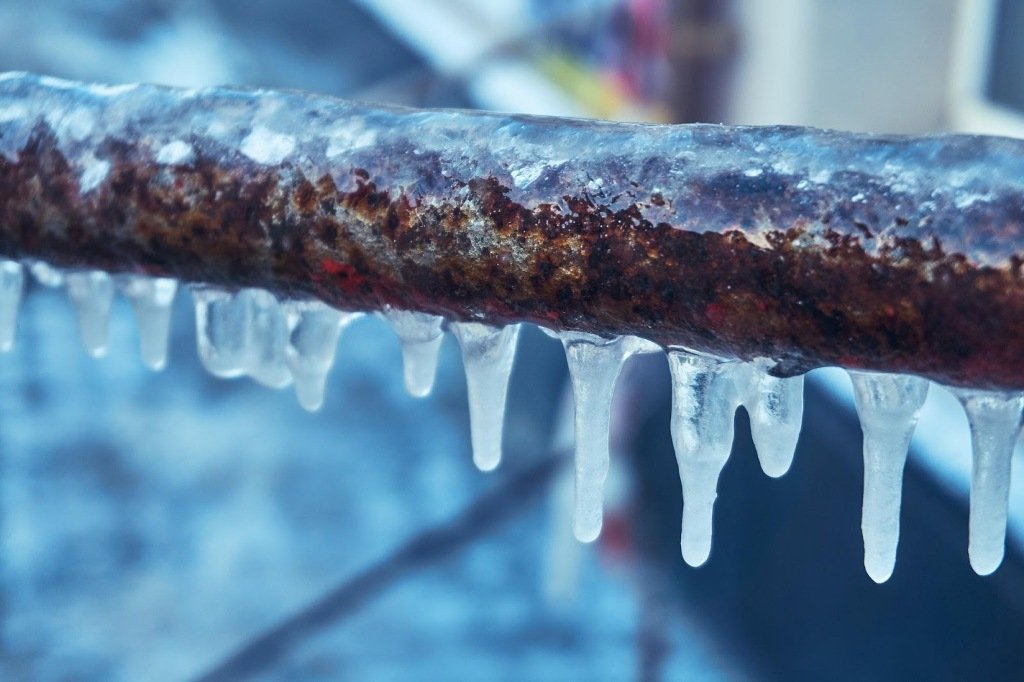
Will Frozen Pipes Thaw on Their Own?
When the cold months of winter start approaching, you have many things to start prepping for as either a homeowner or business owner. The drop in temperature means pulling out your old sheets to cover your plants with, having a shovel on hand to clear the driveway with, getting your window scraper ready to remove ice from the windshield with, and so much more.
The list of winter preparations seems to go on for a lifetime, but one thing should never go without your attention during the winter and that’s your plumbing system. Will frozen pipes thaw on their own after being frozen solid during the winter?
It’s easy to remember to shovel out the driveway each week when you need a clear path to drive in. It’s not as easy to remember to give your home’s or business’ pipes the same amount of attention and once the pipes freeze, you have a problem on your hands.
To learn if frozen pipes will thaw on their own and how to keep them from bursting, continue reading below!
What Causes Pipes to Freeze

If your plumbing system isn’t attended to properly in the winter, you could have a big problem to deal with. Not tending to your plumbing in the correct way will cause your pipes to freeze due to a couple of factors.
Here’s what you need to know.
Significant Drops in Temperature
When there’s a significant drop in temperature, your plumbing system will get cooler just like your body does. As the temperatures continue to drop, the pipes can become frozen. This normally happens with pipes that are located in areas such as the attic, basement, garage, or outside.
Improper Insulation
If there’s improper pipe insulation, your pipes are more prone to freezing. Because the attic, basement, and garage don’t normally have as much insulation as the house does or aren’t temperature-regulated, pipes here will tend to freeze more often.
How to Prevent Pipes from Freezing
There are several ways to stop freezing before it happens. Once you know the cause of frozen pipes, you can then do what’s needed to prevent them from freezing.

Here are a few tips to do just that!
Keep Cabinets Open
To prevent your pipes located inside your home or business from freezing, be sure to keep cabinets open where pipes are located. When the temperatures drop below freezing outdoors, then it’s safe to say that you’re doing what’s needed to keep it warm inside.
By opening all cabinet doors leading to pipes open, you’re allowing for the warm air to reach the pipes, keeping them from freezing. If you’re not going to be at your business or home or an extended period of time, be sure to still keep it warm enough to prevent freezing.
Open the Faucets
Opening the faucets is another great way to keep the pipes from freezing. When the pipes get cold and no water is being run through them, the pressure builds. The buildup of pressure inside the pipes is what causes the pipes to burst.
Allowing a small amount of water to drip down the pipes will prevent this from happening.
Seal All Cracks
All areas in the home or building where pipes are running from the inside to the outside should be sealed from any cracks. You should also seal all cracks around windows or doors as well. This will help with insulation.
Install Insulation
The last thing you can do to prevent your home’s or building’s pipes from freezing is to install proper insulation. You can purchase pipe insulation and wrap your pipes in it. It’s best to do this on pipes located outside or in areas such as the attic, garage, and basement.
Will Frozen Pipes Thaw on Their Own and How to Thaw Them
If it’s too late and the pipes have already become frozen, then you’ll need to learn how to thaw them. Once realizing your pipes are frozen, it’s essential to tackle the issue immediately.

Here’s what you need to know about thawing pipes.
Thawing Over Time
To answer the question up for debate, yes, pipes will thaw on their own. However, this isn’t always the best route to take. Over time, the pipes will begin to thaw on their own, but this won’t happen until the temperature rises again.
Leaving a frozen pipe unattended could result in a pipe burst. The last thing you want is for a frozen pipe to burst, that’s why it’s always best to contact a professional plumber and address the situation immediately rather than allowing a pipe to thaw on its own.
Warm Towels
Using warm towels is another quick way you can begin to thaw the pipes before professionals are able to arrive on the scene. This technique only works on pipes that are accessible, but it’s a good thawing technique.
Place a few towels under hot water, wring them out, and then place them on the pipes starting from the faucet and making your way down.
Electrical Heating Tape
Electrical heating tape is another good way to start thawing the pipes. You’ll wrap the pipes in the tape and then turn it on as needed to send heat throughout the pipes evenly.
This option is one of the more expensive ones but works well.
Don’t Let Winter Ruin Your Plumbing System!

When the cold temperatures of winter begin to creep up on you and your home or building, don’t let it ruin your plumbing system! Keep these helpful tips in mind to prevent freezing from happening and to thaw the pipes when needed.
If you were wondering, “will frozen pipes thaw on their own,” we hope you now have your answer. Pipes, over time, will thaw out on their own, but it’s best to thaw them out as quickly as possible to prevent damage.
Need more posts similar to this one? Check back with us for more!




